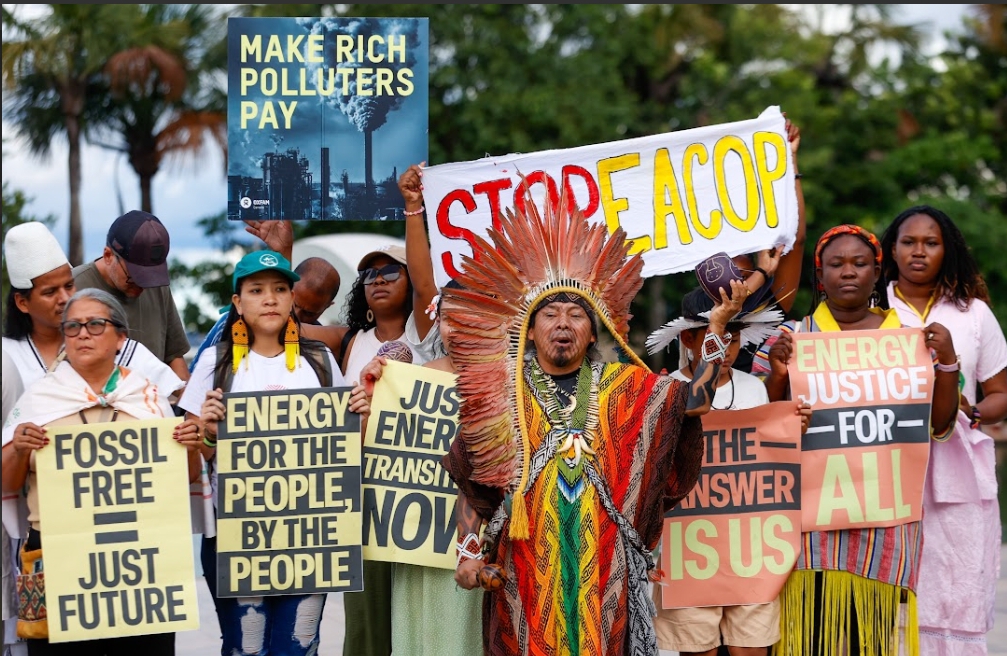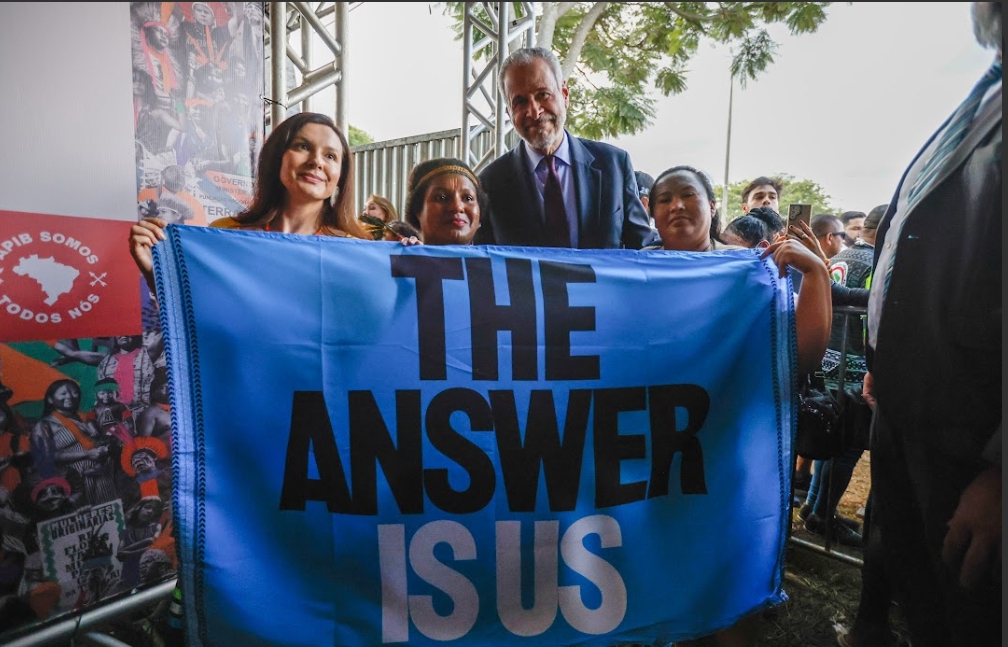By Dare Akogun
Brazil’s Environment and Climate Change Minister, Marina Silva, has reaffirmed her country’s commitment to a just renewable energy transition, urging world leaders to align with Indigenous and traditional community leadership in global climate negotiations ahead of COP30.
Speaking at the final day of the Renew Our Power event in Brazil, which brought together over 200 climate leaders from more than 70 countries, Silva stressed the urgency of implementing decisions made at past COPs, particularly the agreed transition away from fossil fuels.

“We have to think about the root of the climate problem. Does anyone still not know that the root of the problem is the use of fossil fuels? Everyone knows that, it was even agreed at COP28 now it’s implement, implement, implement,” she said.
The minister’s comments come amid growing pressure on Brazil’s COP30 Presidency to centre Indigenous and traditional community voices in climate action.
Last week, dozens of climate activists held a peaceful protest outside the Ministry of Foreign Affairs in Brasília, unfurling a banner made with ashes from Amazon wildfires. The action was a visual call for Brazil to lead a just energy transition globally.
The protest coincided with the Indigenous-led Free Land Camp (ATL), where leaders from the Amazon and Pacific regions declared that traditional community leadership, direct climate finance, and forest, ocean, and soil protection must form the basis of the Global Ethical Balance an initiative launched this year by President Lula and led by Silva.
Silva emphasised the value of Indigenous knowledge, noting that science must go beyond Western paradigms.
“There is another science, that of narrative knowledge, of ancestral knowledge, which says the same thing [as Western science], but with a difference: it says it and does it,” she said.
“COP30 must also be a space for learning. We need a new perspective. It may sound dreamy, but it’s the only thing that will save us.”
Speaking at the event, Cacique Ninawa of the Huni Kui people welcomed Silva’s presence and message.
“We need political courage to eliminate the use of fossil fuels once and for all, accelerate a just energy transition and fund those who have done the most to tackle the climate crisis we Indigenous and traditional peoples are the true climate authorities and guardians of the planet,” he said.

Ilan Zugman, 350.org’s Latin America Director, echoed that view, describing Silva’s participation as “a sign that the call is being heard.”
“If we want to talk about an ethical balance this year, we can’t leave out the people who are most affected by the climate crisis and yet have the least responsibility for it,” he said.
From the Pacific, George Nacewa, a 350.org community organiser from Fiji, said the time for deliberation has passed.
“This year’s COP must spearhead the Just Renewable Energy Transition from words to action,” Nacewa said. “It is now up to the Brazil COP Presidency whether they heed Indigenous and traditional climate leadership or lock us into climate catastrophe.”
COP30 will take place in Belém, Brazil, in 2025, with Marina Silva playing a key role in steering the country’s ethical and political direction in the negotiations.

